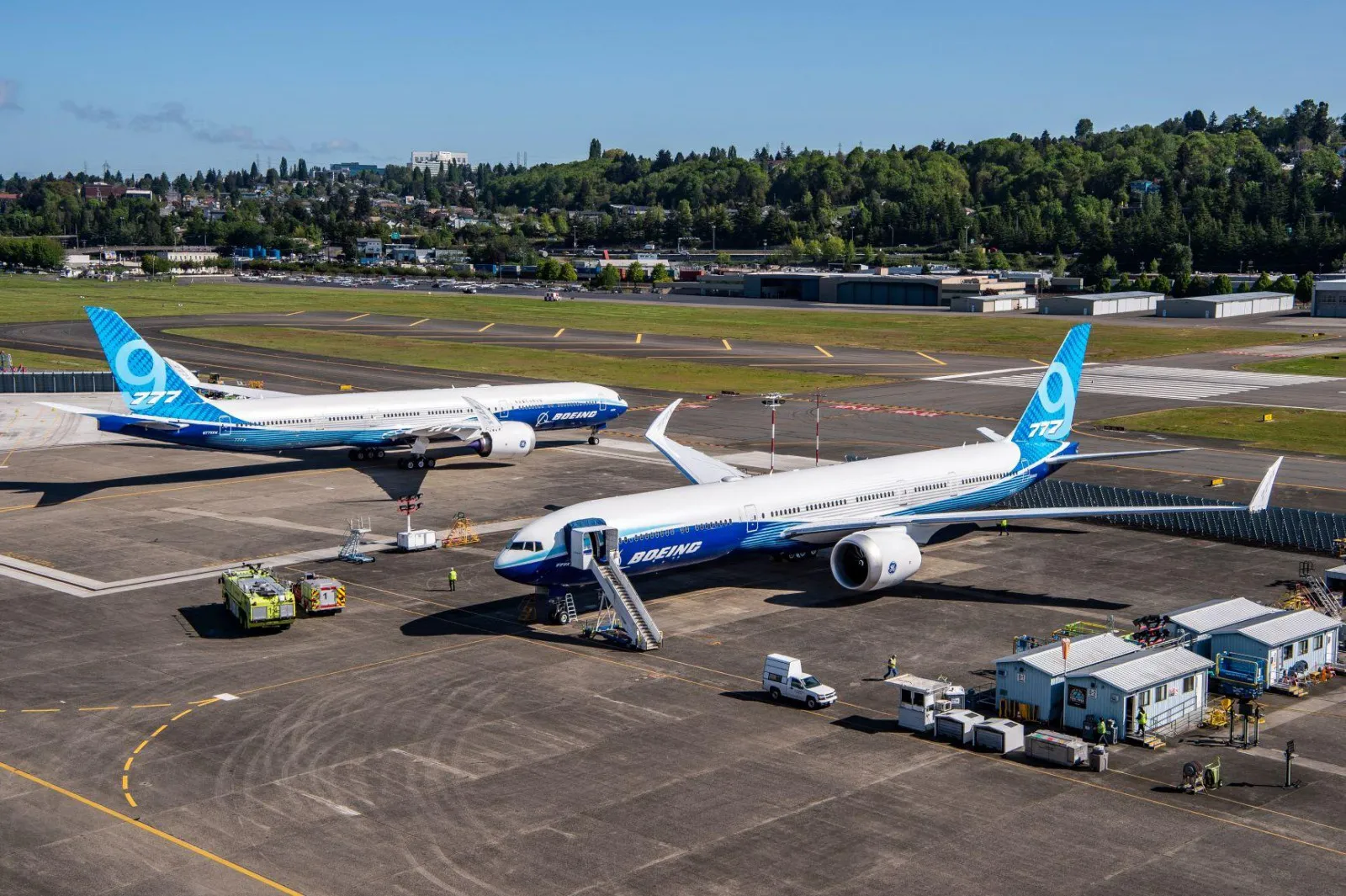
FAA tells Boeing its 777X will not be certified till late 2023
Jun 28, 2021

The Federal Aviation Administration has informed Boeing that the certification process for its 777X aircraft will not be completed until late 2023. This announcement follows a series of delays and challenges faced by Boeing in bringing the new model to market, primarily due to safety concerns and the need for extensive testing. The 777X, which features advanced technology and improved efficiency, was initially expected to enter service earlier, but regulatory scrutiny has significantly pushed back its timeline. This delay could impact Boeing's financial performance and its competitive position in the aviation industry as it continues to navigate regulatory hurdles.
The aviation industry has been closely watching the developments surrounding Boeing's 777X aircraft. Recently, the Federal Aviation Administration (FAA) informed Boeing that the aircraft's certification will not be achieved until late 2023. This news has significant implications for Boeing and the aviation market as a whole. Understanding the factors that led to this delay and its potential impact on the industry is crucial for stakeholders and enthusiasts alike.
Key Reasons for the Delay
Several factors have contributed to the FAA's decision to postpone the certification of the Boeing 777X. Some of the primary reasons include:
- "Technical Issues": The 777X has faced a series of technical challenges that have required extensive testing and modification.
- "Regulatory Scrutiny": Following the MAX crisis, the FAA has increased its scrutiny of new aircraft designs, resulting in a more rigorous certification process.
- "Supply Chain Disruptions": Ongoing supply chain issues have impacted Boeing's ability to produce and test the aircraft on schedule.
Impact on Boeing and the Aviation Industry
The delay in certification has significant ramifications for Boeing as well as the broader aviation sector. Here are some of the key impacts:
| Impact Area | Description |
|---|---|
| "Financial Losses" | The delay could lead to substantial financial losses for Boeing due to postponed deliveries and potential penalties. |
| "Market Competitiveness" | Competitors like Airbus may capitalize on Boeing’s delays, potentially gaining market share in the wide-body segment. |
| "Investor Confidence" | Continued delays may erode investor confidence in Boeing’s management and operational capabilities. |
Current Status of the 777X Program
Boeing has been actively working to address the issues identified by the FAA and ensure the 777X meets all regulatory requirements. As of now, the aircraft has undergone several rounds of testing, and Boeing is optimistic about the eventual certification. The timeline for the program is as follows:
| Milestone | Date |
|---|---|
| Initial Flight Tests | January 2020 |
| FAA Review Begins | March 2021 |
| Proposed Certification Date | Late 2023 |
Future Prospects for the Boeing 777X
Despite the current challenges, there is still optimism surrounding the Boeing 777X program. Some of the key prospects for the future include:
- "Technological Advancements": The 777X is equipped with cutting-edge technology, including new engines and advanced aerodynamics, which could enhance operational efficiency.
- "Market Demand": With the recovery of air travel post-pandemic, there remains a strong demand for fuel-efficient and high-capacity aircraft, which the 777X aims to fulfill.
- "Boeing’s Commitment": Boeing has expressed its commitment to resolving the ongoing issues and delivering a safe and reliable aircraft to its customers.
Conclusion
The FAA's announcement regarding the Boeing 777X certification delay until late 2023 has created ripples in the aviation industry. While the challenges ahead are significant, the response from Boeing and the potential market opportunities may pave the way for a successful future for the aircraft. Stakeholders are advised to stay informed about further developments as the situation evolves. With the 777X representing a key segment of Boeing's product lineup, its successful certification will be crucial for the company’s recovery and growth in the coming years.
Related Articles

Explore Thailand: The Best Islands to Visit for Paradise, Adventure, and Relaxation

The Ultimate Guide to the Best Islands in Thailand for Your Next Getaway

Do babies need passports? How to get a passport for a newborn

How to get a U.S. passport fast: here’s how to expedite the process

What is Mobile Passport Control: 5 reasons why you should use it

SENTRI vs. Global Entry: A detailed guide

Do you need a passport to go to the Bahamas? Let’s find out

Do you need a passport to go to Mexico? A detailed guide

Do you need a passport to go to Canada? We got the answer

Do You Need a Passport for a Cruise: An Essential Travel Guide

Booster Seat Requirements: All the Rules to Follow in Your Rental Car

What Are the World’s Most Powerful Passports, and How Does Yours Rank?

How to Take a Passport Photo at Home: A Helpful Guide

You've got to have heart! Southwest's new livery

Your opinion: Should water be free on low cost carriers?

Young women bolder than guys as solo travellers
